Ukrainian author turned soldier Oleksandry Myked: My book is a warning – war is coming to you

A junkyard of burnt cars. Shattered glass and shell fragments. Bodies lining the streets.
This is Oleksandr Mykhed’s language of war. This is the language of Ukrainians. This is, he says, what we should be ready for: “Because this might happen in your country, and you’d better be prepared for that.”
Mykhed – one of Ukraine’s most prolific authors – is in London promoting his tenth book, The Language of War. His once floppy blonde hair is gone, shaved into a military-style buzz cut instead; it is a nod to his second job, the one he did not choose.
Mykhed, 36, enlisted in the military as soon as the full-scale invasion began. Though he had no previous experience, he was told he would be a mortar battery ammunition man. “You will pass grenades to the loader, carry a box of grenades and the mortar itself,” the enlistment officer said to him, after he asked what he meant by “mortar man”.
He then took part in training before going on patrol away from the frontline. He has recently undergone another 40-day training exercise. After his book tour, it is unclear where he will go next.

The Language of War is a harrowing recount of life as a Ukrainian during the first 13 months of Russia’s invasion – a timely reminder of its ever-presence for the millions living through it. It is, in that sense, a book not about Ukraine but about Ukrainians.
Broken down into a rigid structure, it starts with how the war has affected him, then his family, his peers and his country. It is dotted with anecdotes from other Ukrainians. The book is, he says, a “matrix of the invasion”.
“The idea is to make it an archetype of the Russian invasion and to show that it might happen anywhere,” he says. “Sometimes I feel so childish, so naive, that I have to mention that we are in this state like the Second World War. But there is some knowledge to take from the Ukrainian experience … because this might happen in your country and you’d better be prepared for that.”
The book is thus a snapshot of Mykhed’s rage. “You have to keep that memory and you have to keep your rage sharp,” he says. “Yeah, that’s the function of this book to myself and to my readers, and to those who will discover the book.”
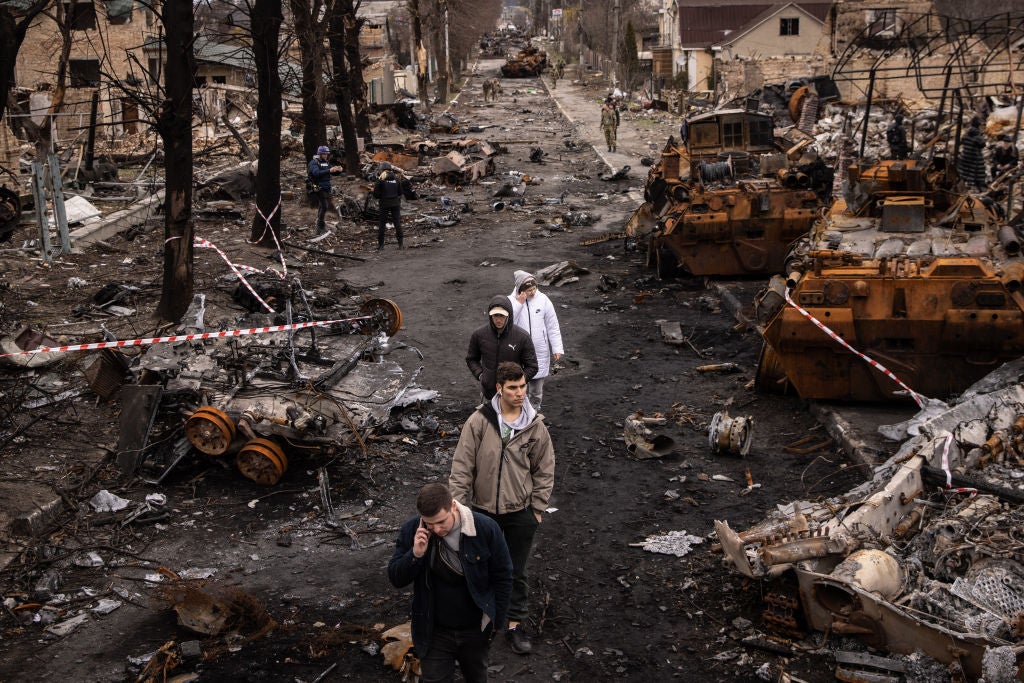
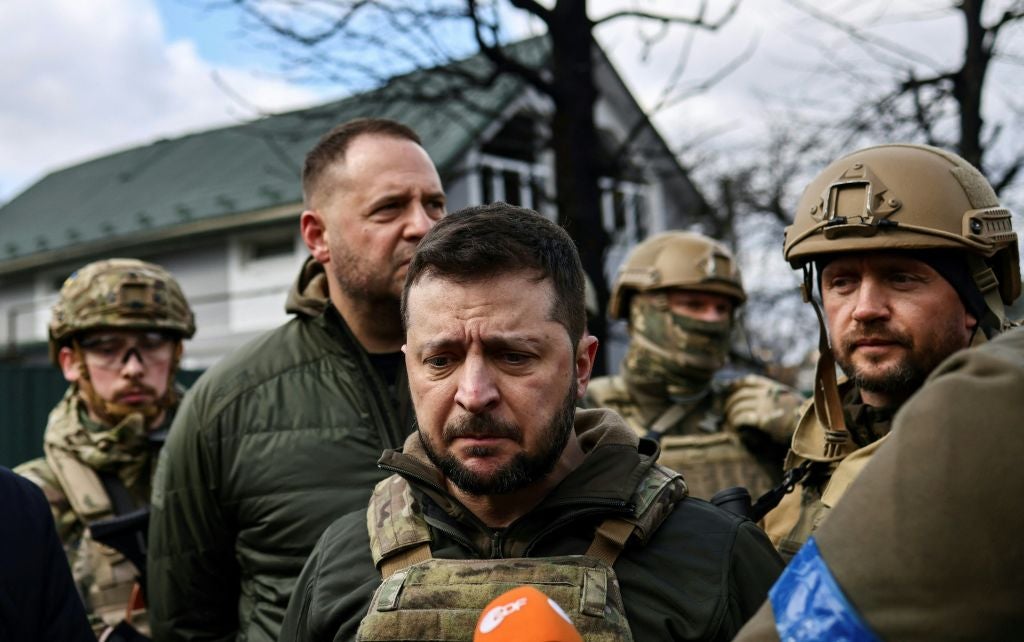
It is hard not to draw comparisons to the documentary 20 Days in Mariupol, a film by Ukrainian journalists Mstyslav Chernov and Evgeniy Maloletka. The film shows footage recorded by the two journalists as Russia tried to capture the southern city of Mariupol, bombing a maternity ward and turning tank turrets onto people’s homes in the process. In his narration through the film, director Mstyslav remembers the horrors of Russian destruction before wondering about the safety of his daughters somewhere else in Ukraine. The film went on to win an Academy Award for Best Documentary Feature Film.
Mykhed says he sees The Language of War as the “twin brother” of Chernov’s documentary. “It is 20 Days in Mariupol but it is almost 400 days in Ukraine,” he says, adding that that is why he asked Mstyslav to write the blurb for his book.
Speaking to The Independent after the interview with Mykhed, Chernov agrees. “We are both seeking new ways, new, ‘immediate and raw’ language of telling the truth about the horror which continues to take place on a daily basis.
“Also perhaps with both the book and the movie, the audience develops a relationship with the writer behind the pages or the filmmaker behind the camera, who is living through these events, as well as documenting them, which I think adds an emotional intensity to our works.”
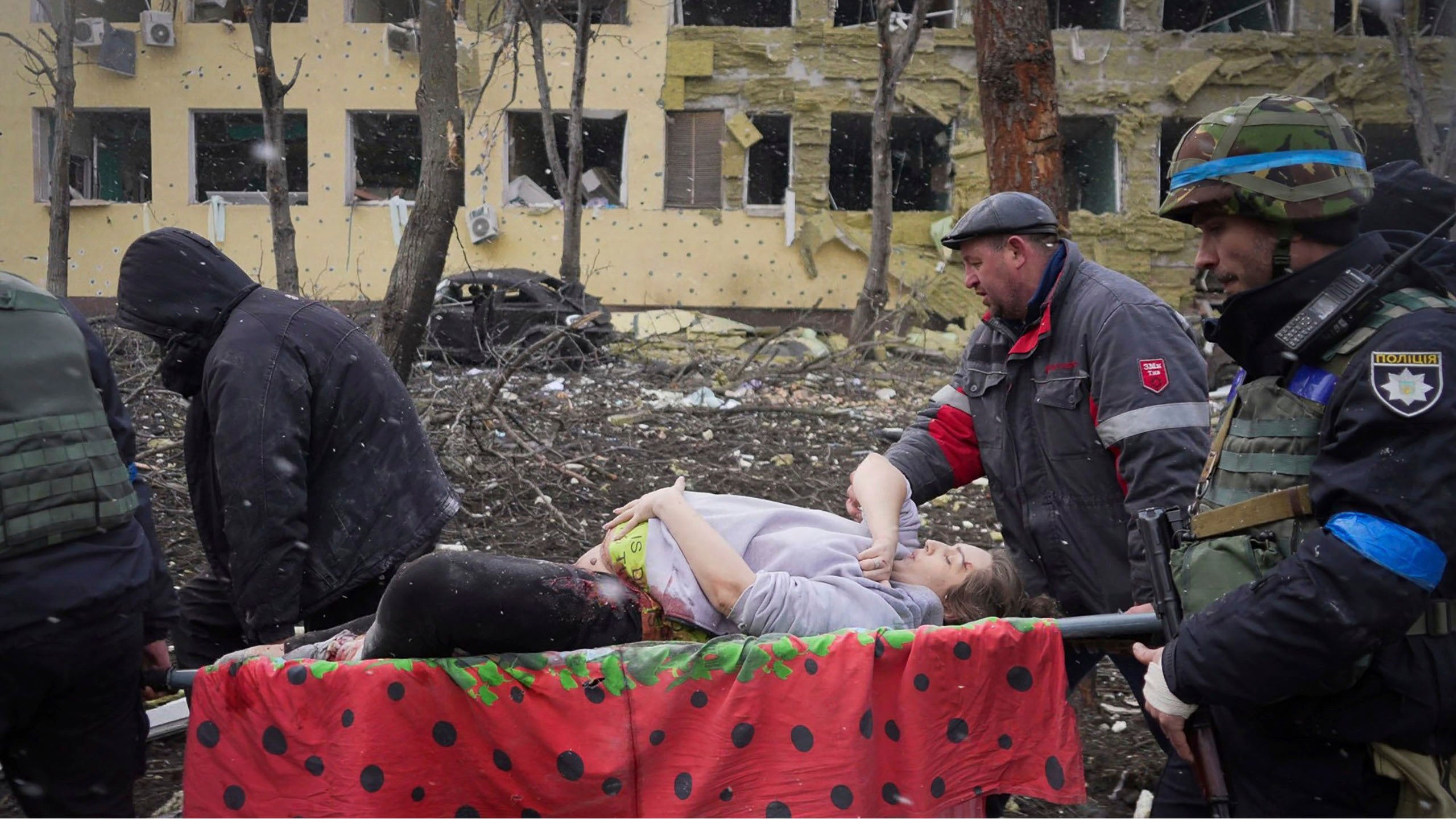
The book opens with Mykhed standing in his parents’ home, on day 383 of the invasion. After recently moving to the Kyiv suburb of Bucha, his parents were forced to hide in their basement for the first weeks of Russia’s occupation in March 2022, while Vladimir Putin’s forces rampaged above them. The pair eventually managed to flee westward. But the home they left behind would later be torn apart by shell fragments.
“Those who had been here had turned everything upside down and smashed the surfaces of every electronic device they could find,” Mykhed writes. “As if they … were afraid to see their own bestial reflection.”
More than 275 pages as the book finishes, he dreams of the end of the war, when he will “scream from pain … squeezing out from myself the fragment of a shell stuck in the wall of my parents’ house”.
“I want to forget it all,” he adds. “I want to never forget.”
One chapter, “Requiem for Tarantino”, is an obituary to Mykhed’s close friend Viktor Onysko, whose call sign in the army was “Tarantino”, in part because he was a film director before he was a soldier. Onysko was killed aged 40 on the penultimate day of 2022 by a Russian shell.
As Mykhed fills in the gaps left in Onysko’s official obituaries with tales of the artist’s eccentricities, he recounts an interview with an unnamed Norwegian journalist.
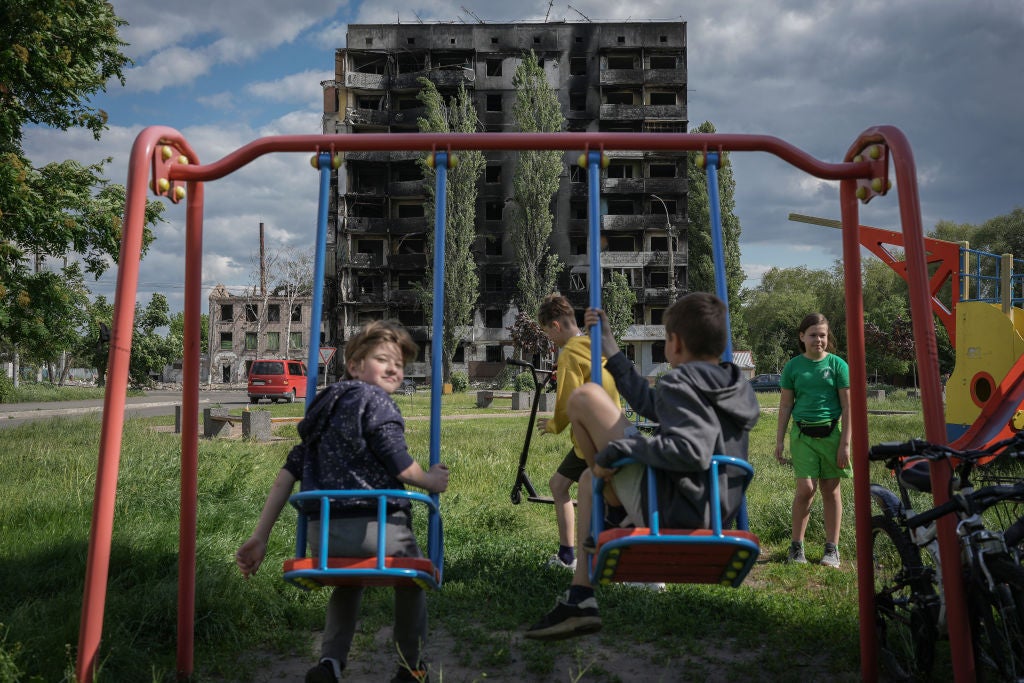
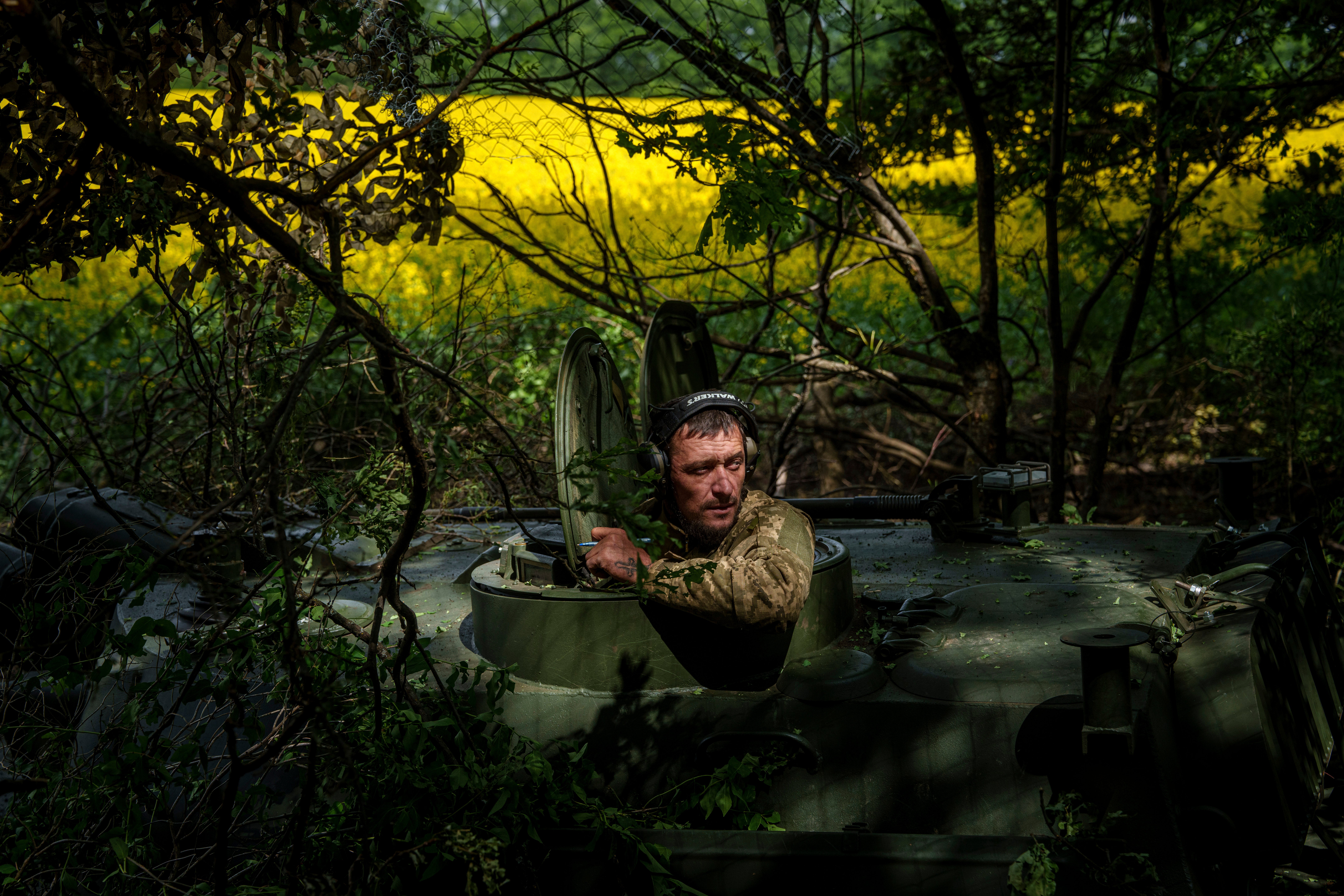
“Do you think he died a hero?” the journalist asks. “What do you feel knowing that many more of your friends will die, and you yourself might perish too?”
The questions cast Mykhed and Onysko as mere subjects of war – which brings, Mykhed writes, an “unstoppable wave of anger” to the surface about being seen as a curiosity.
Mykhed’s account is as “raw” as it is “poignant”, says his friend Christopher Miller, the Ukraine correspondent for The Financial Times, who moved to Ukraine in his mid-20s as part of the Peace Corps. Miller has written his own book about his years in Ukraine, The War Came To Us. “His book will compel you to care,” Miller adds of Mykhed’s work.
What adds to the visceral nature of Mykhed’s book is its inclusion of countless more accounts from fellow Ukrainians. None are more powerful than the stories of Ukraine’s children, detailed in the longest chapter of the book, titled “Blue Van – White Van. Anya and the Children of War”.
Parents write to him to tell him their children are throwing up 10 times a day with anxiety, that they have started playing “Find and Kill the Russians” to pass the time or that they build bomb shelters for the ants in the garden because the insects, unlike the family, have nowhere to run.
Later in the chapter, he gives the story of those young Ukrainians who have only known invasion. “After the words ‘mum’ and ‘dad’, the next words that she learned to pronounce were ‘All clear!’,” writes one parent of her child, referencing the end of an air raid siren.
The scale of Russia’s attacks, and the severity of its impact on Ukraine, are “something that is beyond imagination”, Mykhed says.
“When something so huge happens, you don’t know how to express your feeling, you feel like you’re losing the ground beneath your feet, and you don’t understand how this all happened,” he adds. “The book is written to fix the moment… when I am suddenly lost for words.”





